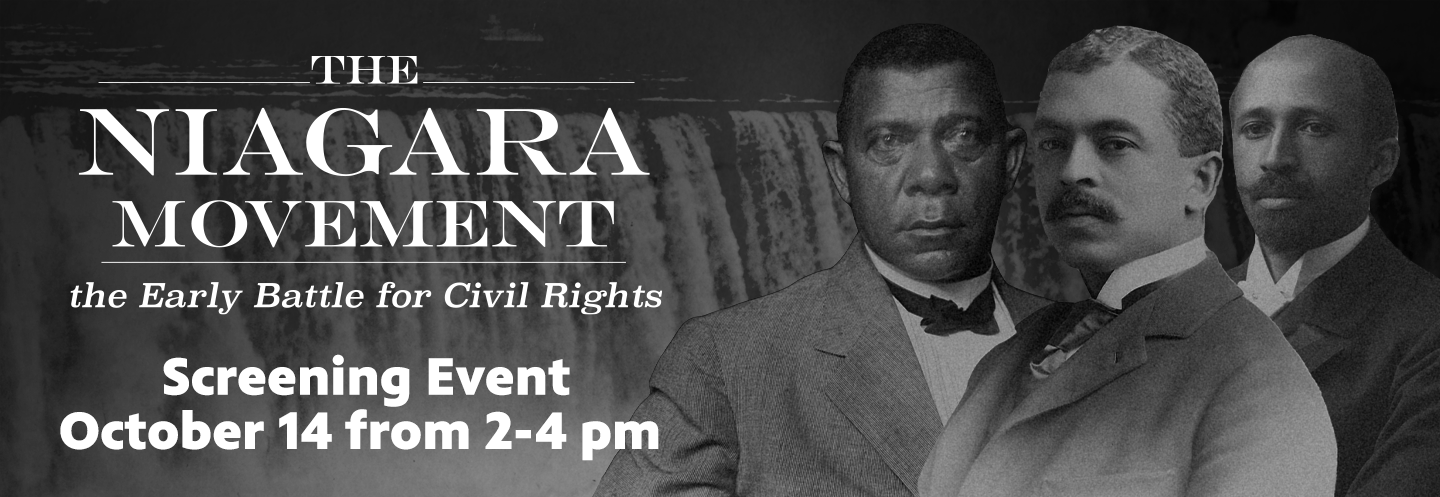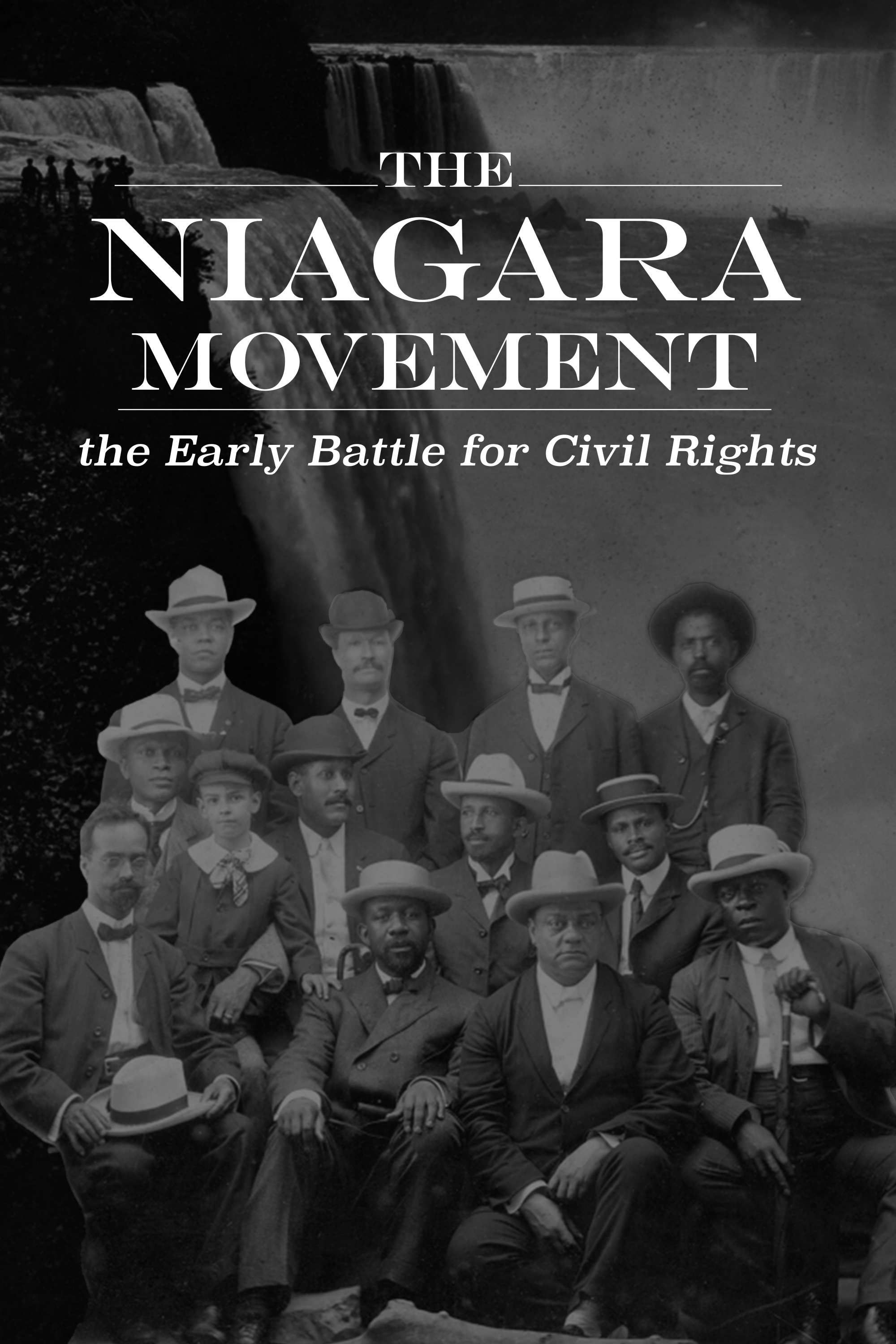
Free Screening of The Niagara Movement: the Early Battle for Civil Rights | October 14
Please join us at Buffalo Toronto Public Media for an exclusive premiere screening event for The Niagara Movement: the Early Battle for Civil Rights at the Buffalo Toronto Public Media studios on October 14 from 2 to 4pm. Be the first to witness WNED PBS's powerful hour-long documentary production, which sheds light on the historic Niagara Movement.
This captivating documentary delves deep into the Niagara Movement's pivotal role in shaping the civil rights landscape. Explore its legacy and impact through remarkable historical accounts and insightful interviews.
Don't miss this opportunity to be part of an enlightening experience. A Q&A will follow the film, which will feature the program’s director Lawrence Hott, subject expert Dr. Aldon Morris, and others. They will discuss the making of the film and the impact of the Niagara Movement.
Reserve your seat today for this free screening, and join us for an afternoon of history, reflection, and inspiration.
This is a free event with FREE PARKING in our parking lot. Popcorn and refreshments will be provided
Space is limited so please RSVP now!

The Niagara Movement: the Early Battle for Civil Rights Screening
Saturday, October 14
2-4pm
Buffalo Toronto Public Media
140 Lower Terrace
Downtown Buffalo
Register Now

Free Parking | 140 Lower Terrace
Buffalo Toronto Public Media is conveniently located in downtown Buffalo at 140 Lower Terrace, near the I-190. The entrance to our parking lot is on Charles Street (also known as "Mark Russell Alley").
About the Film
The Niagara Movement: the Early Battle for Civil Rights, a powerful hour-long documentary by WNED PBS, delves deep into the movement’s pivotal role in shaping the civil rights landscape. The documentary explores the Black elite and intellectual society at the turn of the 20th century and examines the heated debate and conflict W.E.B DuBois and William Monroe Trotter had with Booker T. Washington on how to best uplift the race and secure equality for Black Americans.
In July 1905, a group of 29 men, including Black intellectuals, clergy, writers, newspapermen, and activists, was formed and led by a young sociologist, W.E.B. DuBois. The group adopted the resolutions which lead to the founding of the Niagara Movement. Its Declaration of Principles stated, in part: “We refuse to allow the impression to remain that the Negro-American assents to inferiority, is submissive under oppression, and apologetic before insults.”
The Niagara Movement was, in large part, a repudiation of the methods of Booker T. Washington, the unchallenged leader of Black liberation at the time. This was a time of widespread violence against Black Americans, as the end of Reconstruction brought oppressive Jim Crow laws and widespread lynching. How were Black Americans to respond to this oppression? Washington argued that the progress for Black Americans depended on practical but limited education – that legitimate protest against white supremacy would only make things worse, and that rights were secondary to survival. The formation of the Niagara Movement was a counter-movement: a national group dedicated to accepting nothing less than full civil rights.
Although the Movement was disbanded only four years after its inception, its impact and legacy have proven long-lasting. The Niagara Movement was a critical turning point in fighting inequality and it laid the cornerstone of the modern American Civil Rights Movement. Its influence and legacy are wide: it changed the tone and approach to Black protest in America, it created tactics, such as fighting in the courts for integration, that would be used by the NAACP, and it influenced the ideology of both the “black power” movement of the 1960s and the Black Lives Matter movement of the 21st century.
The Niagara Movement: the Early Battle for Civil Rights premieres November 6 on WNED PBS.
The Niagara Movement | The Early Battle for Civil Rights explores the Black elite and intellectual society at the turn of the 20th century, a class rarely presented. It examines the heated debate and conflict between W.E.B DuBois and William Monroe Trotter with Booker T. Washington on how to best uplift the race and secure equality for their community.

Niagara Movement: The Early Battle for Civil Rights, is a Production of WNED PBS and FlorentineFilms/Hott Productions, Inc.
This program has been made possible by a major grant from The John R. Oishei Foundation, a private Western New York foundation dedicated to enhancing the economic vitality and quality of life for the Buffalo Niagara region through grantmaking and network building. With additional support from The Corporation for Public Broadcasting: A private corporation funded by the American people, Community Foundation of Tampa Bay Inc. - In Memory of Susan Howarth , and by Visit Buffalo Niagara, whose mission is to transform our community by inspiring visitors and locals to discover Buffalo.